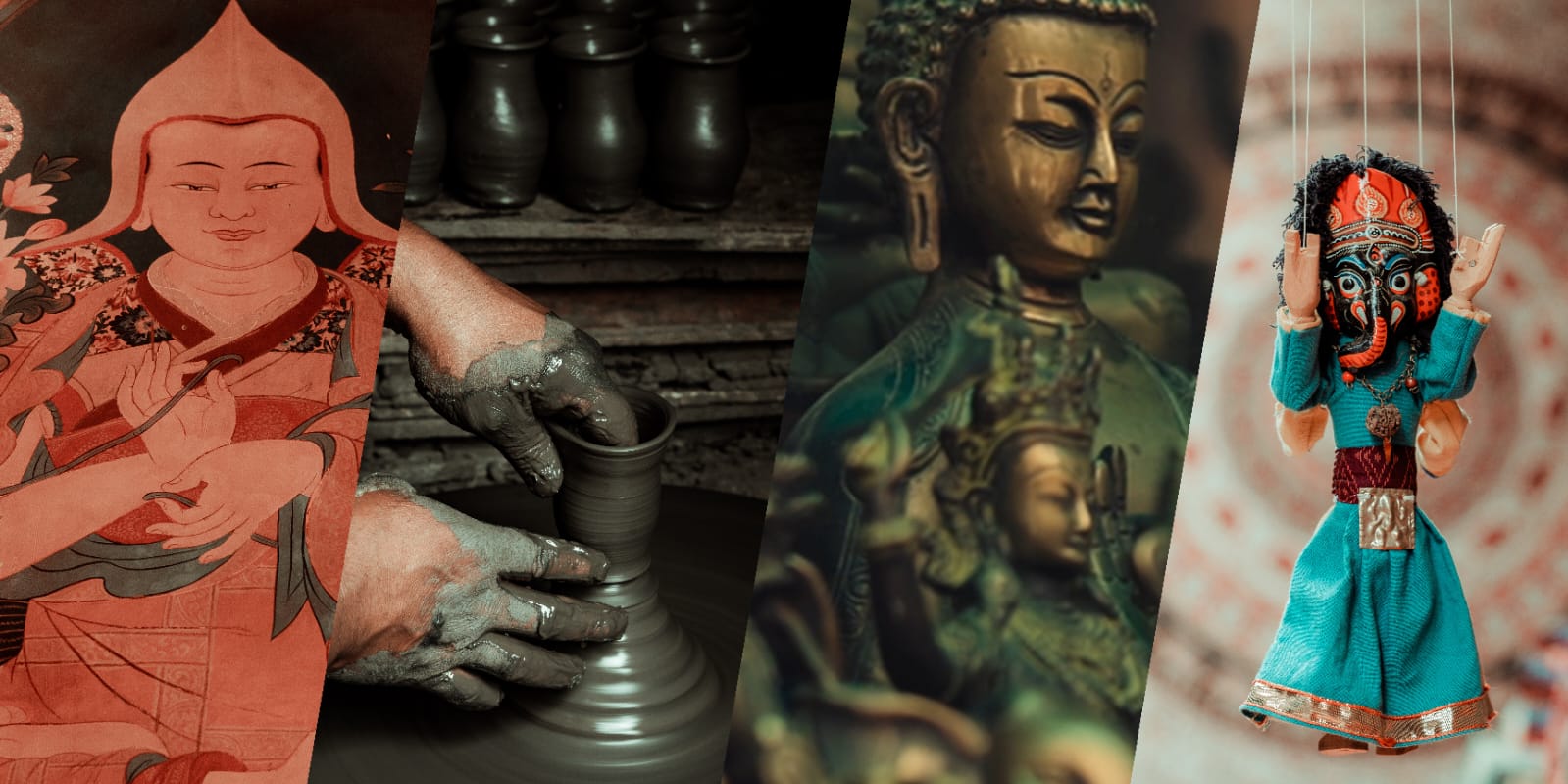Description
☛ Conch shell: Iconographic
The conch shell, this has been used as the original from the past ancient times, in ancient history of Nepal and India these horns are used to commence is any rituals or worn. Popularly known as Shanka, is a musical instrument blow by the lord Krishna to declare the start of the war of Mahabharata. in all the epic stories of Hinduism shankha has been described being carried by all the heroes of the past.
☛ Shakti: Introduction
Shakti Yab-yum is a common symbol in Nepalese and Tibetan art. It represents the primordial union of wisdom and compassion, depicted as a male deity in union with his female consort via the similar concept of interpenetration or “coalescence,” as illustrated by the concept of Indra’s net. The male figure represents compassion and dexterity, while the female figure represents insight. The female is seated on the male’s lap in yab-yum. A rare rendition of a similar figure, but reversed, with the male sitting on the female’s lap, is known as yum-yab.
☛ Yellow Jambhala: Brief Introduction
Jambhala (also known as Dzambhala, Dzambala, Zambala, or Jambala) is the God of Wealth and appropriately a member of the Jewel Family (see Ratnasambhava). He is sometimes equated with the Hindu deity Kubera. Jambhala is also believed to be an emanation of Avalokitesvara or Chenrezig, the Bodhisattva of Compassion. There are five different wealth Jambhalas; each has its own practice and mantra to help eliminate poverty and create financial stability.
Gyalten Sogdzin Rinpoche said that Jambhala is the protector of all Lineages and of all sentient beings from all sickness and difficulties. Jambhala is a Bodhisattva of material and spiritual wealth as well as many other things, especially of granting financial stability.
Because in this world, there are all kinds of wrathful and negative emotions or bad spirits, and sometimes they will harm you and other sentient beings, Dzambhala must take on such a wrathful and powerful form to protect us from these harmful spirits and negative karma. Especially, Dzambhala helps us minimize or decrease all misfortunes and obstacles and helps us increase all good fortune and happiness.










Reviews
There are no reviews yet.